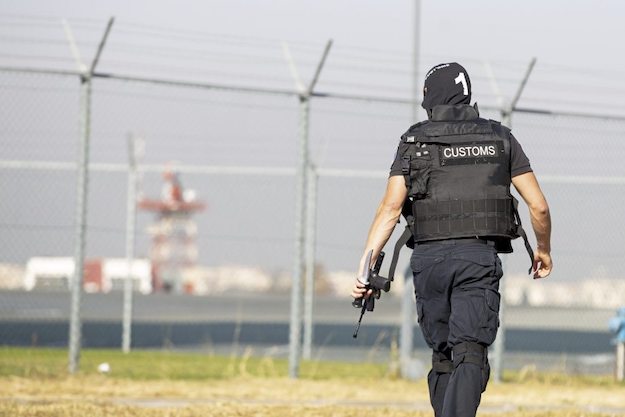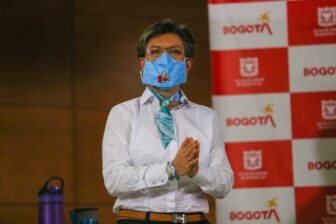This article is adapted from AQ’s special report on transnational organized crime | Ler em português | Leer en español
COVID-19 has devastated normal life and greatly affected the global economy. Governments have countered the pandemic with travel restrictions, social distancing measures, strict hygiene protocols and direct economic intervention. And the disruption of economic activity and global supply chains associated with consumer goods, like tobacco, affected not only the legal economy but also the illicit market.
According to a 2020 Euromonitor International report, the pandemic resulted in the growth of illicit trade, especially in the tobacco industry, where organized crime is causing governments to lose billions in tax revenue, as well as severely affecting legitimate businesses. As government resources continue to be stretched to curb the pandemic, criminals are taking advantage of shifting regulatory frameworks, supply shortages, changing consumer preferences and price gaps to expand their illicit profits via new distribution channels, and innovate production and supply chains.
The numbers for illicit tobacco trade were already significant. The WHO has estimated that 10% to 12% of cigarettes worldwide are illegal, corresponding to an estimated 400 to 460 billion cigarettes. This costs governments worldwide $40 billion to $50 billion each year.
Our region is no stranger to this problem. Ecuador and Panama, in particular, are the Latin American countries with the highest consumption of illegal cigarettes, reaching over 70% of total consumption by the end of 2019. According to the KPMG EOS report for Latin America and Canada, consumption of illegal cigarettes grew from 17% in 2016 to 22% in 2018, and accounted for 52.5 billion cigarettes, with an estimated lost tax revenue of $6 billion. Our estimate for 2019 (based on independent studies) is that illicit consumption kept growing, reaching 23%, which represented around 54.7 billion cigarettes.
And the COVID-19 outbreak is not helping the situation.
The pandemic has served to reroute the illicit goods market in the long run. The proliferation of goods being sold online—including in the dark web—has soared, placing an added burden on law enforcement and customs authorities. As highlighted by The Economist Intelligence Unit, while the demand for personal protective equipment might eventually disappear, the illicit markets created during the pandemic will likely remain … and so will the criminals who run those markets.
What works (and what does not)?
Different approaches to fighting COVID-19 and mitigating its effect on the population have had a significant impact on the illicit trade landscape. For example, the decision to ban the sale of tobacco and cigarettes in South Africa led to an increase in illegal sales. And enforced lockdowns in Asia and the Americas caused a spike in wildlife poaching.
In Argentina, the mandatory quarantine led to the closure of tobacco factories and consequently to a cigarette shortage. This situation triggered criminal organizations to switch from drug trafficking to cigarette contraband. It also fostered the proliferation of local companies offering brands with low quality standards and control. These companies sell cigarettes at prices far below major competitors as they managed to be exempt from paying minimum excise tax, levied on most companies. This mechanism is possible thanks to judicial injunctions that permitted companies to sell their most popular brands for half the price.
However, not all countries have seen adverse effects resulting from restrictions.
Canada, in cooperation with the U.S., closed its border to nonessential traffic during the COVID-19 pandemic, allowing very limited and controlled border crossings, resulting in the disruption of cross-border tobacco smuggling. In eastern Canada, the governments of New Brunswick and Nova Scotia even implemented inter-provincial travel restrictions. Due to all these restrictions, consumers turned to legitimate retail sources for tobacco, which resulted in increased tax collection from the sale of tobacco products, as observed in the provinces of Ontario and Quebec.
Looking ahead
An important lesson from COVID-19 is that bans end up fueling illicit trade. We have also seen how blocking the outflow of smuggled cigarettes through enhanced enforcement and border controls is paramount to significantly reduce illicit trade. These learnings will be crucial to help us disrupt the illegal market, which will require not only innovative solutions, but also greater collaboration and improved regulation.
As we enter 2021, there is hope for effectively combating illicit trade in all its forms. Last year, the spotlight placed on illicit trade led to a greater understanding of its negative impact, and this presents an opportunity to work together toward disrupting illicit economies and the criminals profiting from them.
Part of the solution is opening a dialogue between law enforcement agencies, civil society, governments and the private sector. Because no one can stop illicit trade on their own. In the case of Philip Morris International (PMI), we work with public and private sectors alike to promote comprehensive, sustainable and long-lasting action against illicit trade, focusing on awareness-raising activities, support to customs authorities, providing technical training to law enforcement officials, and advocating for regulatory frameworks that can allow for illegal products to be attacked at their sources.
Eliminating illicit trade is also particularly important within the context of PMI’s business transformation toward a smoke-free future, where cigarettes are ultimately replaced by better alternatives for adult smokers who would otherwise continue to smoke. We are fully aware that to achieve a world without cigarettes, we must help secure a future without illicit trade.
So where are we heading? It’s clear to me that public-private partnerships based on an inclusive approach by governments, private sector, and civil society—coupled with the implementation of appropriate regulation—will be vital to help advance the fight against illicit trade in Latin America and the rest of the world. We are ready to do our part.
__
Vermaut is the regional head of illicit trade prevention for Latin America and Canada at Philip Morris International








